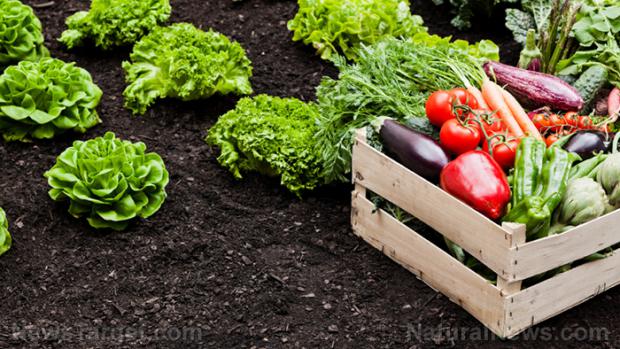
Breaking News
 COMEX Silver: 21 Days Until 429 Million Ounces of Demand Meets 103 Million Supply. (March Crisis)
COMEX Silver: 21 Days Until 429 Million Ounces of Demand Meets 103 Million Supply. (March Crisis)
 Marjorie Taylor Greene: MAGA Was "All a Lie," "Isn't Really About America or the
Marjorie Taylor Greene: MAGA Was "All a Lie," "Isn't Really About America or the
 Why America's Two-Party System Will Never Threaten the True Political Elites
Why America's Two-Party System Will Never Threaten the True Political Elites
 Generation Now #7 – Youth in Davos | Youth Pulse 2026 | Skills That Matter
Generation Now #7 – Youth in Davos | Youth Pulse 2026 | Skills That Matter
Top Tech News
 How underwater 3D printing could soon transform maritime construction
How underwater 3D printing could soon transform maritime construction
 Smart soldering iron packs a camera to show you what you're doing
Smart soldering iron packs a camera to show you what you're doing
 Look, no hands: Flying umbrella follows user through the rain
Look, no hands: Flying umbrella follows user through the rain
 Critical Linux Warning: 800,000 Devices Are EXPOSED
Critical Linux Warning: 800,000 Devices Are EXPOSED
 'Brave New World': IVF Company's Eugenics Tool Lets Couples Pick 'Best' Baby, Di
'Brave New World': IVF Company's Eugenics Tool Lets Couples Pick 'Best' Baby, Di
 The smartphone just fired a warning shot at the camera industry.
The smartphone just fired a warning shot at the camera industry.
 A revolutionary breakthrough in dental science is changing how we fight tooth decay
A revolutionary breakthrough in dental science is changing how we fight tooth decay
 Docan Energy "Panda": 32kWh for $2,530!
Docan Energy "Panda": 32kWh for $2,530!
 Rugged phone with multi-day battery life doubles as a 1080p projector
Rugged phone with multi-day battery life doubles as a 1080p projector
 4 Sisters Invent Electric Tractor with Mom and Dad and it's Selling in 5 Countries
4 Sisters Invent Electric Tractor with Mom and Dad and it's Selling in 5 Countries
How this couple earns a six figure annual income with 1.5 acres of land

(Natural News) Can small-scale farming in the modern age really generate enough income for the average family to make an honest living? For Jean-Martin Fortier and his wife, Maude-Hélène Desroches, it does. The Canadian couple grows beets, broccoli, salad greens, carrots, and various other types of produce on their modest 1.5 acres of land, from which they generate an average of at least $140,000 per year in sales – not too shabby!
They tell all in their new book The Market Gardener: A Successful Grower's Handbook for Small-Scale Organic Farming, sharing many of the secrets they've uncovered about the local nature of food production. There's no need for large agricultural organizations to "feed the world," as goes the mantra, when everyday people are feeding themselves and their communities, they explain. And those who do it right have the potential to reap a financial windfall as well.
While the general perception is that farming, and especially the "backyard" variety, is more of a hobby for most people than it is a source of income, Fortier and his wife believe otherwise. Their own successful farm serves as living proof that it's more than possible for people to get into the agricultural business and do well if they possess the drive and wherewithal to make it happen.
Born and raised in Quebec, Fortier started farming with his wife when he was still an intern at WWOOFers, a worldwide organic farming movement that promotes cultural and educational experiences to help people form communities around locally-grown food. They started out by renting some land to grow food, and gradually worked their way up to owning their own land and launching a full-scale business out of it.
Today, they grow an extensive mix of produce that requires them to work the land for nine months out of the year. From their bounty, the feed 200 families a week that subscribe to their community-supported agriculture program, also known as a CSA. Members of a CSA typically receive a fresh box of produce weekly or bi-weekly as part of their subscription.
"I felt that there was a need for [a book] like this," Fortier says, referencing these and other concepts as he covers them in his book. "I have been involved with growing the food movement. My response was to tell people that they can grow and here is how."
Growing better, not bigger, can still be highly profitable
But what about organic growing methods? Foregoing the use of chemical pesticides and herbicides oftentimes comes with added costs and labor, not to mention the possibility of lower yields. Does growing organic food specifically still bode well in the profit department? According to Fortier and his wife, absolutely.
When they first started out, the couple adopted unique methods of growing food that Fortier describes as being "biologically intensive." Many of these natural methods of permaculture they still use today, including conservation tillage, permanent growing beds, and crop rotation, all of which have proven to be a huge success.



